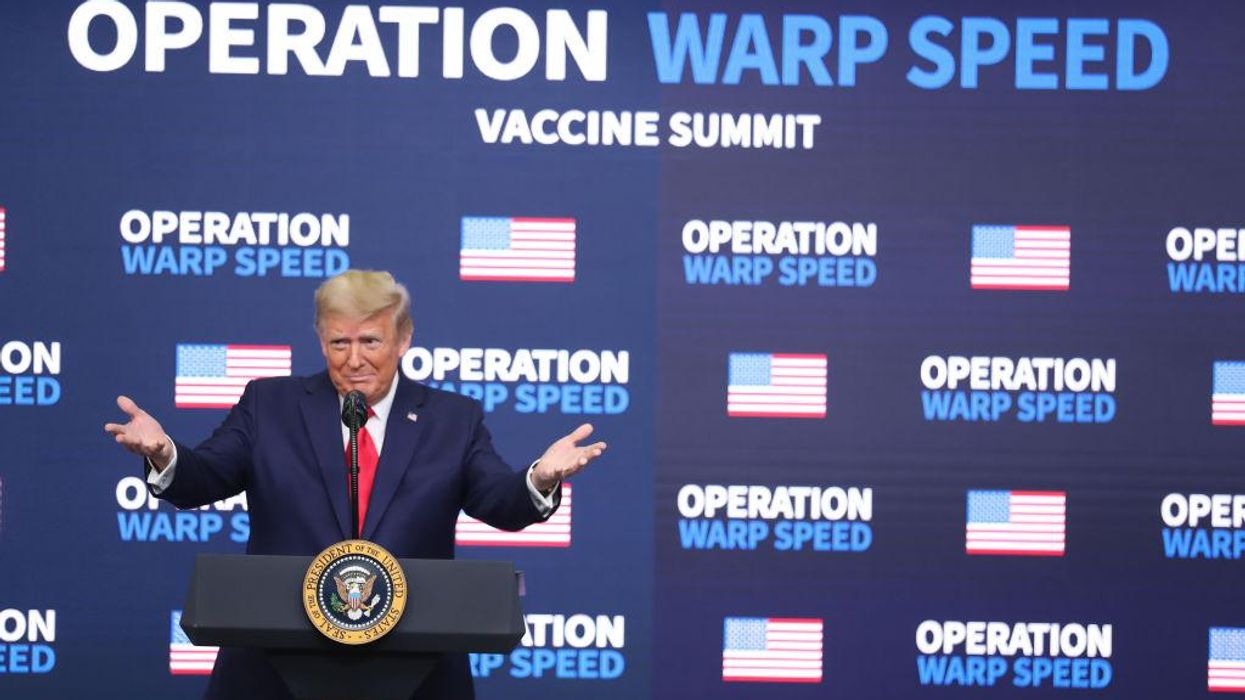
Oliver Contreras/SIPA USA/Bloomberg via Getty Images

Trump proved them all wrong
On Friday, the U.S. Food and Drug Administration officially granted Pfizer's coronavirus vaccine emergency use authorization, kicking off a massive distribution plan that promises to inoculate millions of Americans by the year's end. On Monday, the first doses of the groundbreaking vaccine were administered at Long Island Jewish Medical Center in Queens, New York.
This is overwhelming good news and obviously a historic achievement for the United States, and yes, many thanks are owed to the Trump administration, which pushed the development of a vaccine into overdrive with Operation Warp Speed. But don't tell that to critics of the president, who vehemently discounted that a vaccine could be produced so quickly simply because it was President Trump who promised it.
For months, public health experts and legacy media organizations cautioned Americans that Trump's claims of a vaccine by the end of the year were "impossible."
"It is preposterous," pandemic expert Dr. Irwin Redlener said in May regarding Trump's promise. "It is impossible to get that done by the end of the year."
NBC News ran a fact-check on Trump's claims, citing experts to say that a vaccine was still 12 to 18 months away unless a medical "miracle" happened.
Bloomberg News questioned if Trump's vaccine aspirations amounted to an "impossible dream."
Business Insider reported in April that a vaccine against the coronavirus might be impossible to produce regardless of the timeline.
In a September report about Trump's vaccine promises, NPR made sure to note that the president was "contradicting the [U.S. Centers for Disease Control and Prevention]."
ABC News similarly reported that Trump's vaccine promise stood in contrast to what his own team of experts said.
CNBC noted that Trump's promise, which he repeated during the final presidential debate, was issued "despite contrary evidence."
When Trump announced at a campaign stop early in November that a vaccine was within weeks of being developed, Vox journalist Aaron Rupar called it the "surest indication yet" that America was not close on a vaccine.
Trump's statement turned out to be correct. On Nov. 9, Pfizer and BioNTech announced a breakthrough on the vaccine.
On the campaign trail, former Vice President Joe Biden said, "I trust vaccines. I trust scientists. But I don't trust Donald Trump."
It appears that many public health experts and media organizations adopted that same line of thinking. Instead of reporting about the optimistic progress taking place in the search for a vaccine, they leaned into any pessimism they could find around the subject. Ultimately, they were proven wrong.